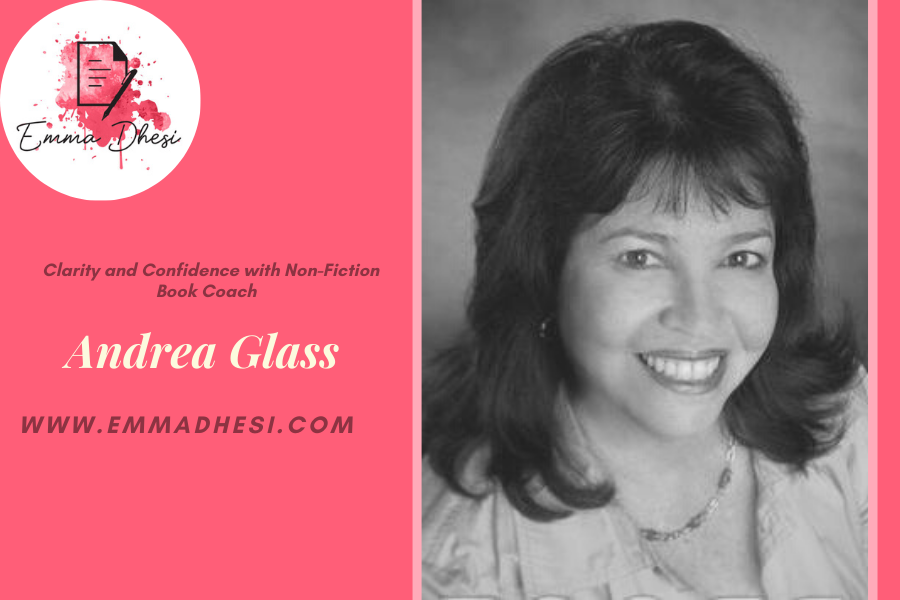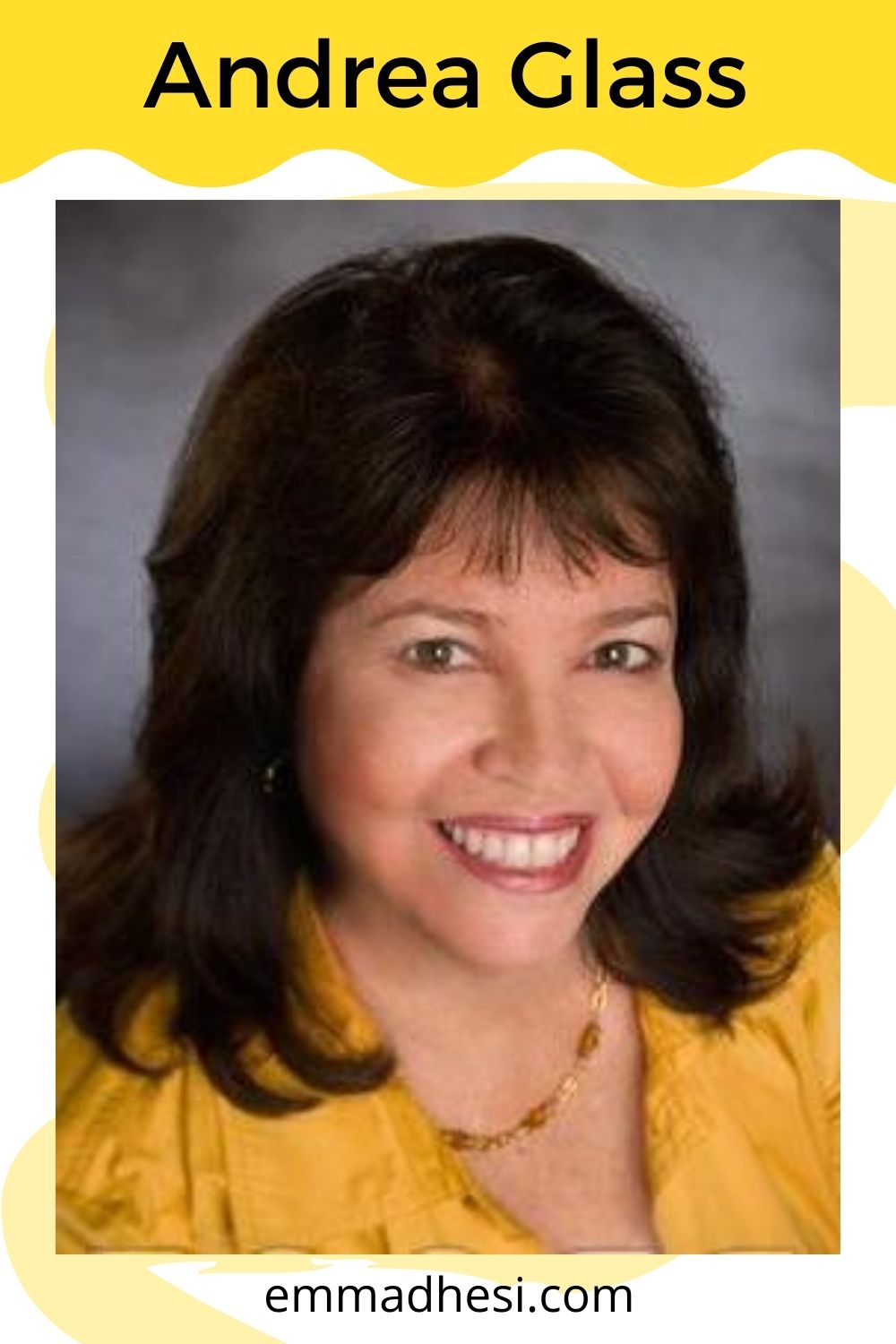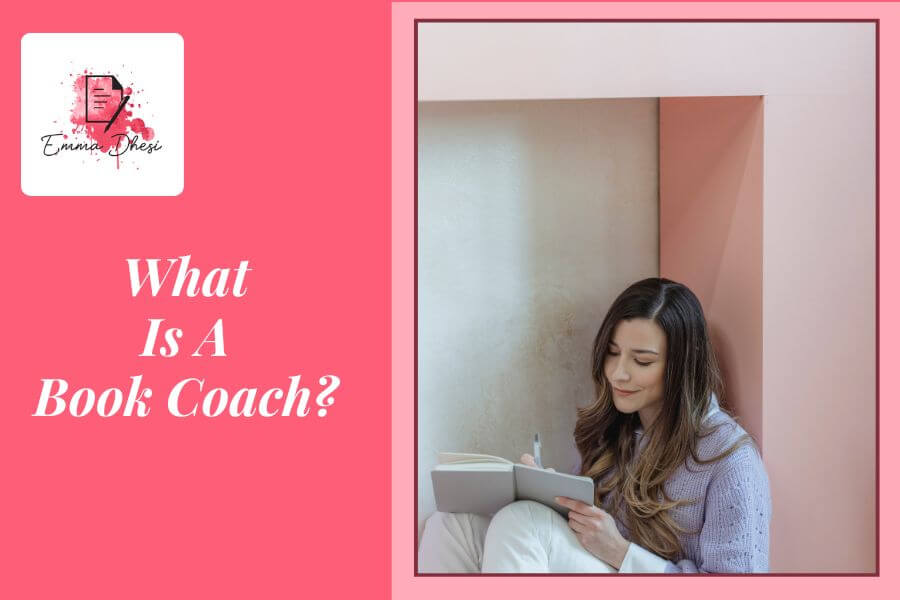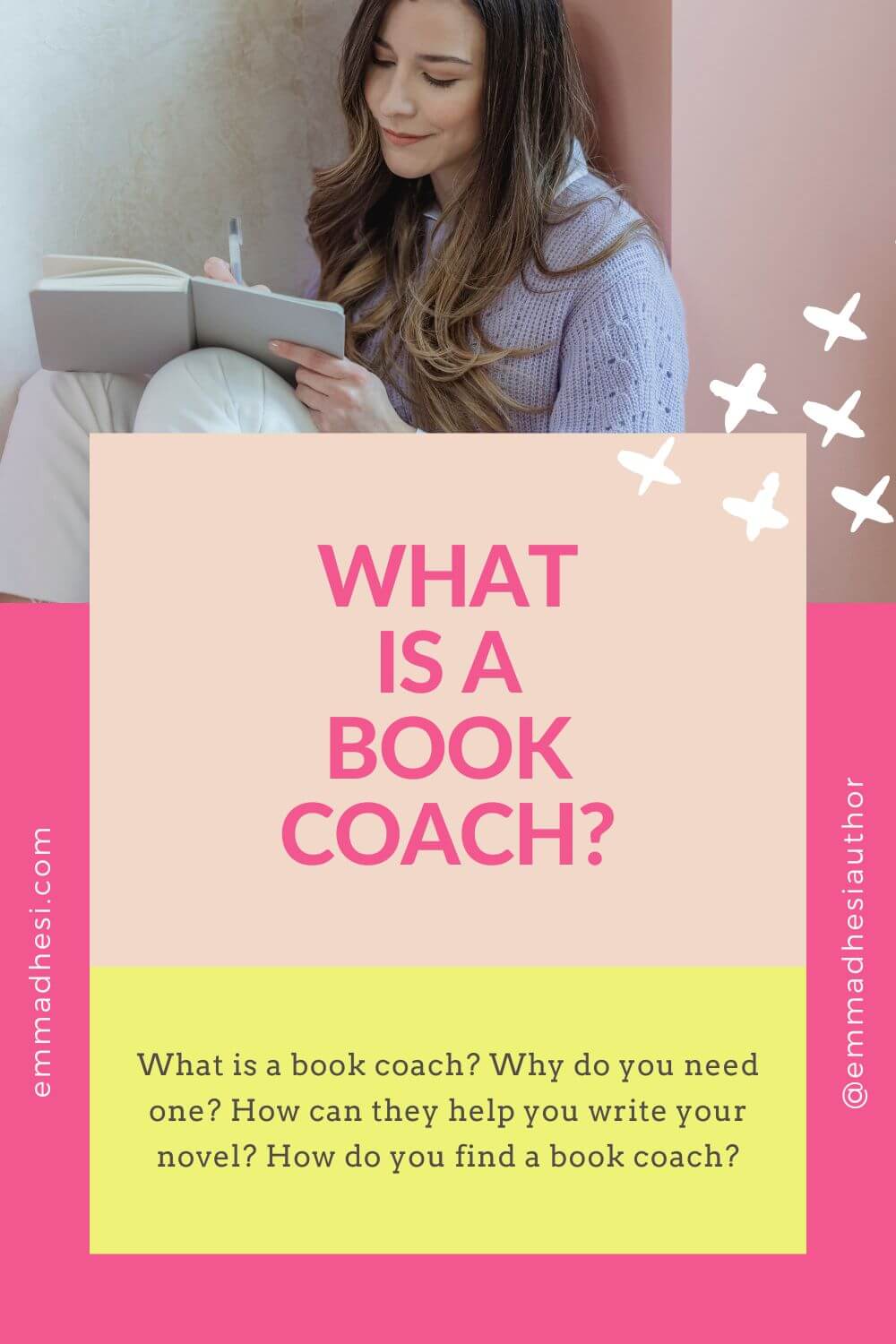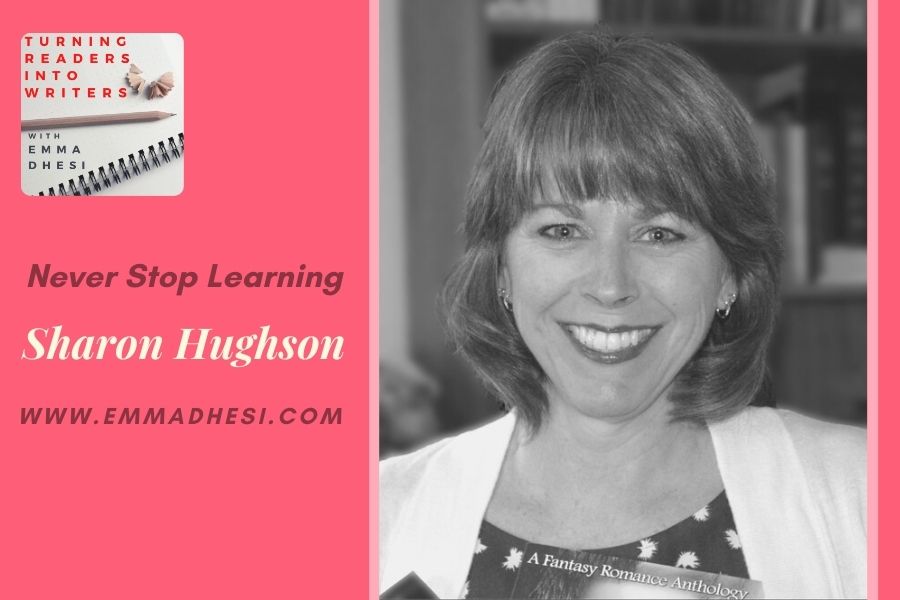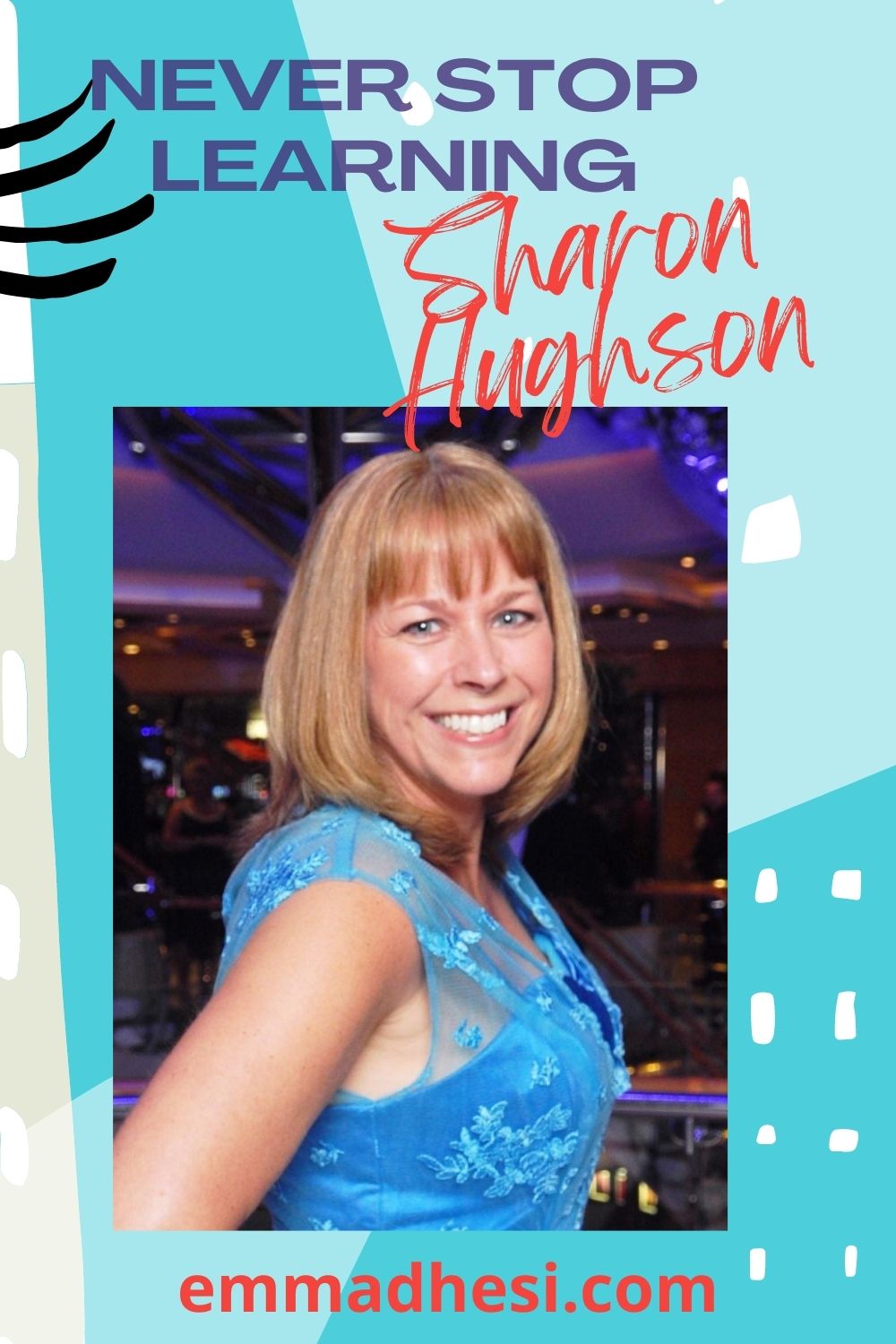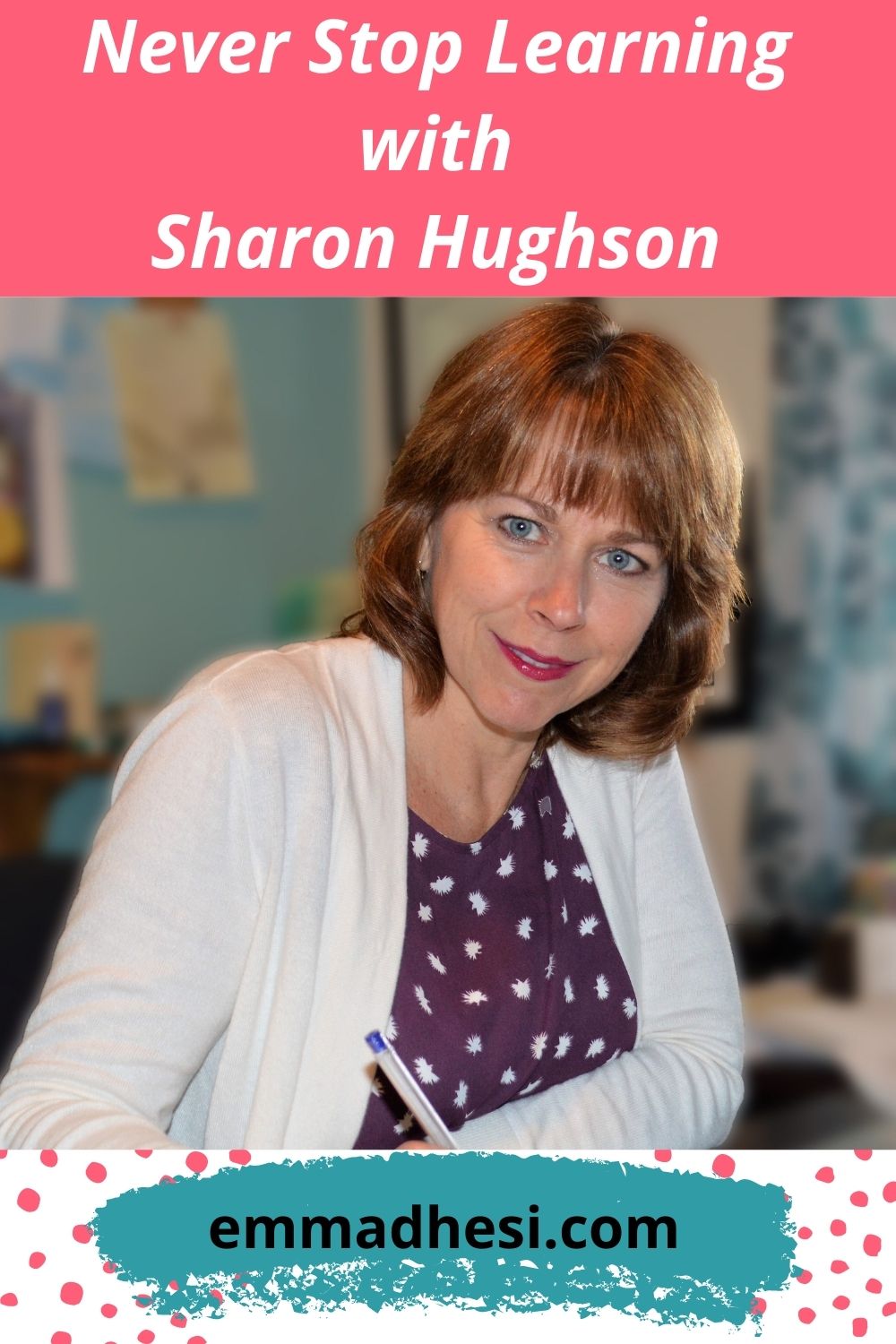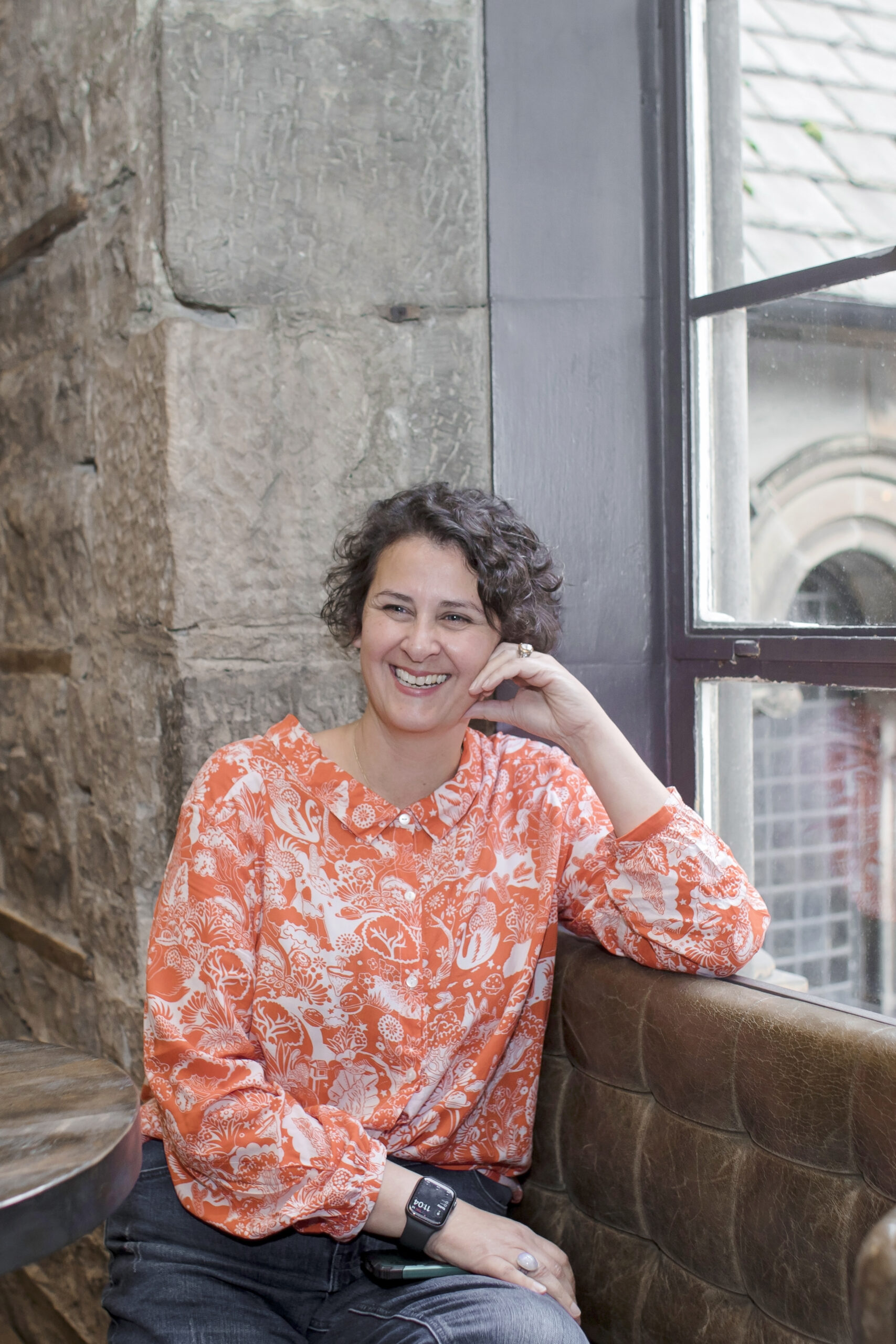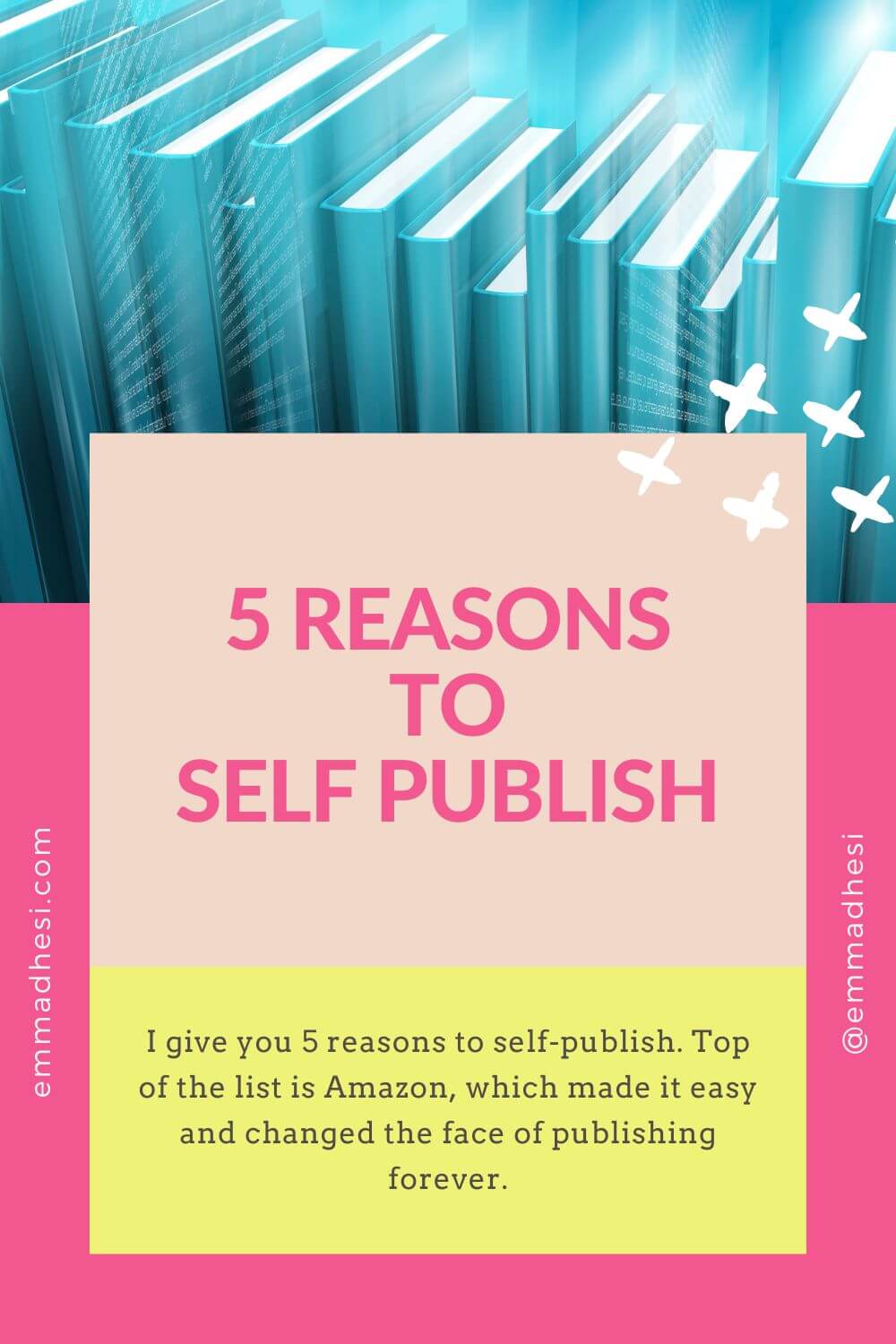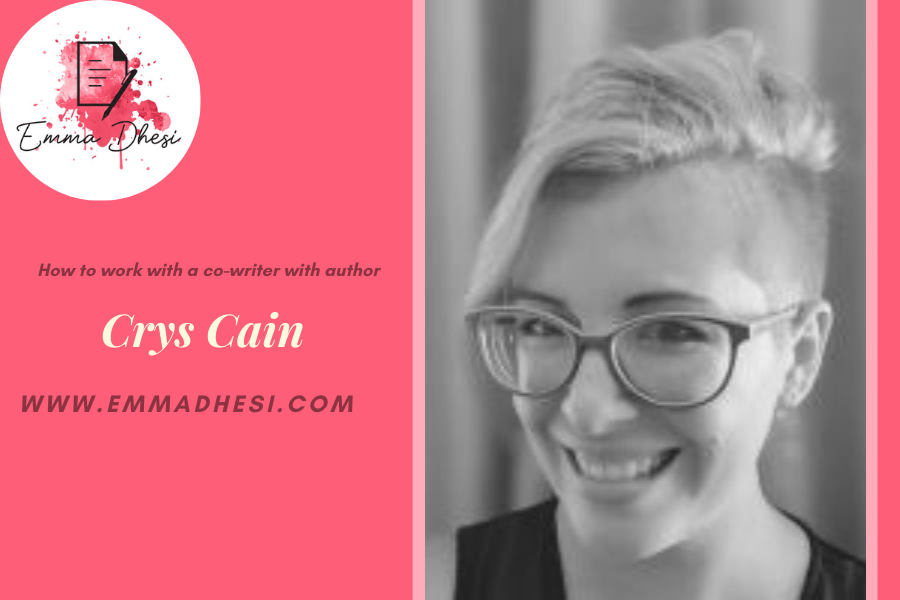
Crys Cain explains how to co-write a novel
Crys Cain explains how to co-write a novel
Interview with Crys Cain
Emma Dhesi 00:00
Hello, I’m Emma Dhesi and welcome to another episode of turning readers into writers. If you’re brand new here, welcome and here’s what you need to know. This is a community that believes you are never too old to write your first novel, no matter what you’ve been up to until now, if you’re ready to write your book, I’m ready to help you reach the end, I focus on helping you find the time and confidence to begin your writing journey, as well as the craft and skills you need to finish the book.
Each week I interview debut authors, editors and industry experts to keep you motivated, inspired, and educated on all things writing, editing, and publishing. If you want to catch up, head on over to emmadhesi.com, where you’ll find a wealth of information and tools to help you get started.
Before we dive in, this week’s episode is brought to you by my free cheat sheet 30 Top Tips to find time to write. In this guide, I give you 30 ways that you can find time to write in the small gaps that appear between the various errands and tasks and responsibilities that you have in your day to day life. I know you might be thinking that you don’t have any time to spare.
But I can guarantee these top tips will give you writing time you didn’t think you had. If you thought writing always involved a pen and paper or a keyboard. Think again. If you thought you needed at least an hour at a time to write your manuscript. I help you reframe that, you won’t be disappointed.
Get your free copy of 30 Top Tips to find time to write by going to emmadhesi.com/30TopTips.
Okay, let’s dive in to today’s episode.
After having a kid, losing her job going broke and moving across countries to live with her parents.
Crys Cain started publishing romance under a super secret pen name in 2017. She now shares what she’s learned as a full time, occasionally six figure author on the right away podcast and with the author success mastermind community. So let’s find out a little bit more about Crys and her writing and in particular, why she chooses to co write her stories and the way that she co writes them. It’s something I’ve always been intrigued to learn more about it. And so I’m thrilled to talk to Crys about it today.
Let’s find out more.
Well, Crys, thank you so so much for being here today. I’m really excited to talk to you.
Crys Cain 02:35
Thanks for inviting me.
Emma Dhesi 02:38
Now, one of the first things I often ask people is, you know, what, what was your journey to writing? How did you become a writer?
Crys Cain 02:45
I was one of those people who wanted to be a writer from from very small. So which I think is the majority of writers. It’s not all of them. That is the majority and so I wrote stories throughout school years and rarely finished anything other than, you know, a school assignment.
I remember writing, having to make up some kind of folk tale style story in grade school. But, and then I stopped kind of for college because college takes over University takes over the brain, and you stop reading for fun and you stop doing anything mental for fun, because that’s all gone to schoolwork and after I got out of university and I moved to Nashville, I had a pretty intense bout of depression, I really didn’t have any friends because I’d moved to a new area.
And my best friend did live in the same city technically, but we were at least 45 minutes away from each other. So I started attending writers meetup groups in Nashville and that really got me back into the writing brain having energy because I don’t know how people write without writer friends. I do not know how they do it. I see so many people say oh, I don’t you know, I don’t have any writer friends.
I’m like, how do you write them? Like how do you how do you get to the page without the excitement that talking about writing gives you and that’s me, but and then publishing I knew I wanted to self publish for quite a while once self publishing started and I studied it you know, Amanda Hocking happened and Joe Conrad, and they were making the big bucks and I didn’t expect to be there but I still didn’t finish anything and publish and that was what 2009 that the Kindle came out and all that craziness.
So I just kind of sat on my bum and wrote things but didn’t finish them and then I just happened to write this little romance novella, like paranormal romance novella. I want to say it was a about 2014 – 2015 and then I did finish it was the first thing I didn’t finish is a little over 20,000 words, and I just kind of jumped it on my harddrive and didn’t do anything with it.
Fast forward. I had my son in 2016, lost my job three months later, moved back to New York, from Costa Rica with the last bit of money.
My husband at the time had left in our bank accounts. And a friend of mine happened to say to me that week, oh, I found this little niche on Amazon. And we should write something in it. I was like, Oh, yeah, I’m familiar with that niche from fanfiction, I have something that I can just alter a little bit and publish it.
And I’d been in the business long enough, I’d been in publishing adjacent positions in cover writing and editing, that I knew you didn’t just publish something and then make money. I was like, yeah, we’ll publish, you know, three books or whatever. And then we’ll start marketing. But it just happened that I had the right cover for the right genre, with the right keywords at the right time.
And it sold $20 that first day live in this is in Kindle Unlimited, and I knew that wasn’t normal. So I looked at my then husband, and I was like, yo, if I just go all in on this, because I was a software developer, and I was trying, I was applying for jobs, but not really excited about going into office, if I just go all in on this, this is it.
This is my path, I’d never have to go into an office again. He’s like, well, you have to prove that you can like make $3,000 in a month, which is our baseline of living. Before you can stop looking for software development jobs.
So I was still applying and doing interviews, but writing my butt off and the second month, halfway through the month, it was very clear, I was gonna hit 3000. He’s like, okay, you don’t you can stop applying. Like we can agree on that.
And I have not dropped below that amount per month sense. And that is not normal.
Emma Dhesi 06:58
No, I was just thinking that you’re a bit of a unicorn in that way, you know, from the first book from the first get go, that not only are you making some money, but actually making livable money as well. So that’s…
Crys Cain 07:11
Yeah, and I don’t underplay. Yeah, I don’t underplay my hard work, or cuz in that first month, my co writer and I put out three stories. One was 20,000 words, one was 13, or 16,000 words in it. And the other one, I think, was 30,000 words. And then I think we put two out the next month and some of some of them are so low, and some of them were co right.
And I don’t downplay my hard work. But there’s so much luck that went into that other people have come into this little niche since then. And have not had that same luck, because of the writers come into niches and waves. And as in a lot of people are looking for quick money. I didn’t know that this was a genre that like was making good money.
And I happen to come in during Molo, as did my current co writer and dear friend, she came in a few months after me. And so we had during this lull, and we were producing quickly, and we really grabbed people’s attention. And then since then, because there were us and a few others who come in around the same time, we’re very clearly making money.
Other people ran in little gold rush mentality. And it became harder to make money and it just ebbs in and flows in these little genres like that.
Emma Dhesi 08:32
Oh, so do you find that? And so do you find that now that you’re established in genre that you’re still able to maintain that level of success? Or do you find that it’s taken a dip or it changes because now there’s more people writing in that niche?
Crys Cain 08:49
I think we maintain specifically the series I have with my co writer it for both of us and she is the top earning author in our in our niche. But for the two of us the books that make the most maybe not completely for her. But our series together as the most popular thing we write.
And it is how most people are introduced to us. So that series kind of maintains us when I write solo books, they make quite a bit less. And so and different books in different series earn different levels, with our co written books, they’re all in the same world even if they’re broken into different series. So most readers see them it’s the same series. So we’ve been able to maintain really well over that series.
But we can never guarantee like any particular series is going to make a certain amount.
Emma Dhesi 09:44
Okay. So interesting. It’s, your right there is a level a level of of luck, but I think there’s also an element of, of so right. I read very traditionally And so I’m kind of not in with any particular very niche genre. So I think there is an element, if you’re the kind of person who’s already looking for something different for something exciting, then you’re already kind of giving yourself a bit of a not Head Start, but a leg up, because you’re willing to be out there and looking for new things.
Whereas I have to admit, I stick to kind of what I see around me rather than seeking out new things. But something that’s always been kind of impressed me about us, and tell me if I’m wrong, but you have to have a very good sense of yourself and what you’re keeping the love and confidence with your writing.
So even thinking about that, that first story that you put out, thinking that you know, like a story that might fit with this genre, let me put that out and see what happens.
I think a lot of us, particularly newbies, would be going Oh, oh, let me forget about this a little bit more don’t have to rewrite the whole thing and, or don’t need to change all up, but feels like you went, I’m gonna give this a go. And you did.
Crys Cain 11:02
I definitely did with that story. And there are two reasons for it because I’m internally, a default basket case, I have learned a lot of strategies to not be a basket case. But thanks to childhood trauma, anxiety is a default for me.
And I have learned a lot of how to manage that. And, and for it to not be a default mean for me all the time. But with that first book, one, I was publishing an under a pen name, and a shared pen name. So my co writer and I were both writing under the same pen name, whether it was co writes or solos, and two, I didn’t expect anybody to see it at all.
And I think that’s a really good expectation to have when you’re publishing your first book. Most people write a book of their hearts, a book they really want people to see. And that’s the first book they put out there.
And I think mentally, that’s probably not the best thing you can do, the best thing to do is write a book, like it’s an assignment that you kind of don’t care about, but that you want to hit all the marks that the teacher tells you, you have to mark, and then you publish that, like it’s an assignment. I think that’s the best way to start.
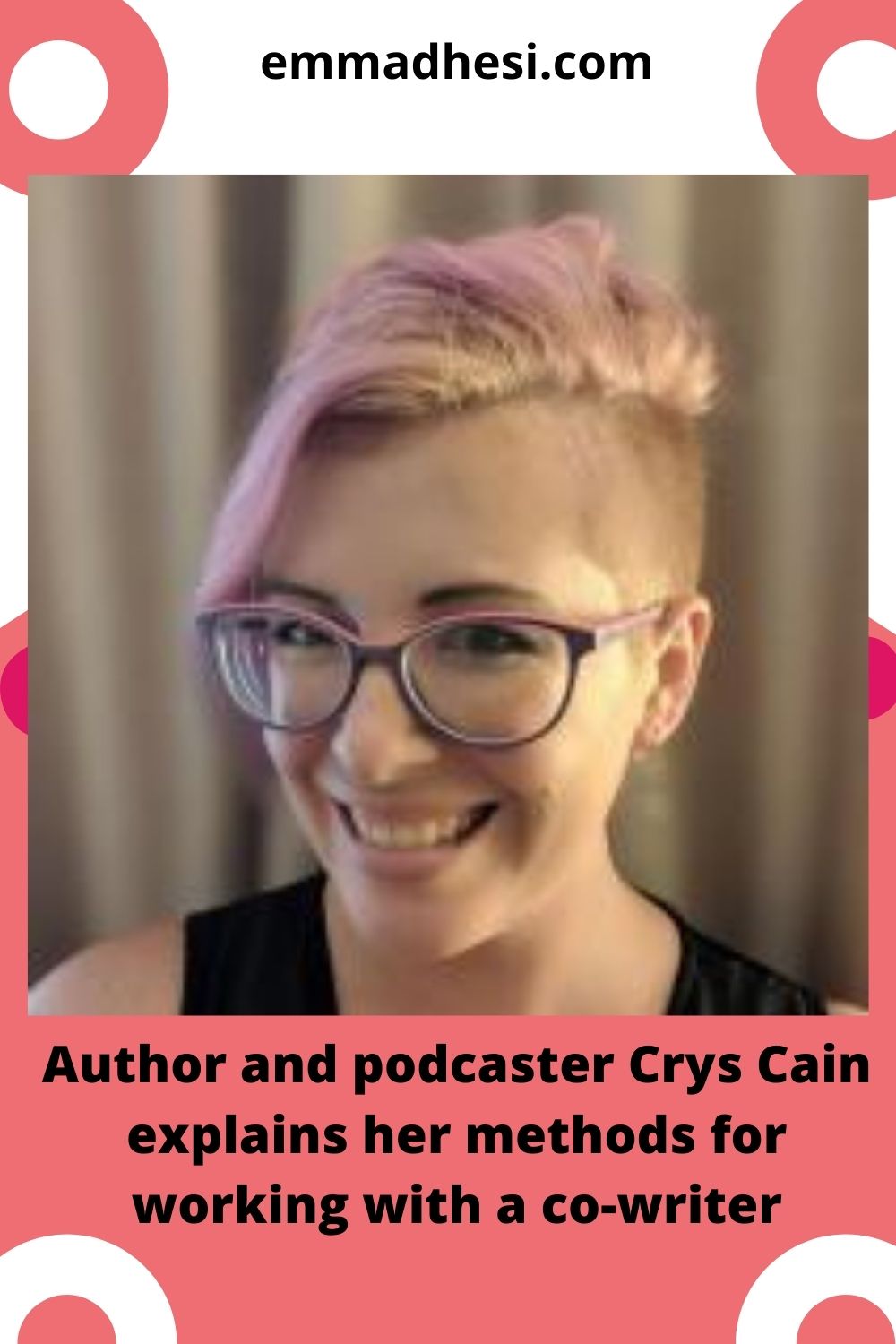
Emma Dhesi 12:17
Just to get over that hole of fear of just getting it done and going through the motions almost. And then you’re absolutely right. Like it’s a good to a good approach. And so you’ve mentioned that a couple of times that you call, right. And it’s certainly one of the things that’s all it does fascinate me.
And, and by nature, I’m a bit of a lone wolf, I think many writers tend to be, but I know that you could write a new J Thorne, who we both kind of in his community.
And he co writes as well. It’s a big advocate of that. So a couple of things I’d love to ask you. And one of the first one is, do you think that co writing is more suited to certain personality types? Or do you think it’s something that we tell ourselves that this is a lone wolf? job, but actually, we could we could all cooperate if we wanted to.
Crys Cain 13:11
I think that just like anyone can write, anyone can co write, but not everyone’s going to be happy doing so. And that’s okay. Yeah, I think everyone should try it probably once. But you don’t have to like it. And people who go into it thinking like this is a way I’m going to write faster.
Sometimes that’s true. Sometimes it is not. There’s this like dictation. Sometimes dictation will be faster for different writers. And sometimes it will actually slow people down. But for some reason for you know, maybe medical reasons, one of the reason I started dictating was pain from sitting at the computer so much.
Sometimes you just have to do things that do make you slow, because that’s what gets the work done.
Emma Dhesi 14:11
Okay, and so you’ve worked with, I think, three different corporations now. So how do you guys get together with kind of thing? Or we’d like to work together? Do you know each other’s work separately?
And like what you’ve read and still think it would be a good union? Or are you friends and then you think it’d be fun to work together? How does it work?
Crys Cain 14:33
Yeah, for me, both of those. So I think I’ve had four co writers that I can think of off the top of my head. And the first one who was like, Oh, we should write this genre. I had been her editor for quite a while.
And so I was very familiar with her style. And it was a very different style from mine. But because I was familiar with that, I was like, Okay, I can absolutely work with this and we can blend That relationships flamed out very brightly over communication issues.
And, and sadly ended that friendship because of broken trust. So that is always a risk with co-writing, if you do not both have the same importance of communication, please, I’ve got massive noise in the background, we have vegetable trucks that drive up three times a day, and we just go buy our veggies from the truck half the time, nice.
And they shut up. Okay, they shut up there I have my filter on but I can’t think I’m, that’s been out to the truck, and just Hey, I’m gonna take this this and this night, of course we have, we have our favorite track. So we make sure it’s all that. But um, my then my next co writer is the one I’ve been writing with the longest.
And that’s where we have over 20 book world with, I think we’re on series number four and five that were writing code currently. And we were both in a really dark place. My dog had passed, I can’t remember what health issues were going on in her family. And I was like, let’s just write something to distract ourselves, we didn’t really expect it to go anywhere. It was very different from anything else that either of us had read more of a soldier group trope, and each soldier finds you know, the love of their life.
And so we went dark, and we went 13 year old boy humor and just completely distracted ourselves from what was going on in our lives. And readers loved it. And so now we are 20 some books later. But after the first series, we were both like, okay, we’re done. Like that was a good experience. But both of us had frustrations that were like, Nah, I don’t really want to do this anymore.
But we came back a couple months later, because we were still really good friends. And we discussed our business moves with each other. And our schedules just bounce back and forth. And I was telling her what was going on with me. And she was telling me what was going on with her. She said why don’t we Why don’t we write another series, because that’ll help us with our schedules and our timeframes.
And I said, Okay, yeah, but I’ve got some stipulations. She’s like, I do too. And, and mine, mine were about scheduling. I didn’t I hate feeling pressed. And I hate running up against getting crunched against deadlines. And hers was it was we were currently publishing everything under my KDP account. But we started our own company, because it had proved that had made enough money to support that and moved it onto its own KDP account, so that she could access it if there was anything that needed to be changed or updated, or Amazon flops that needs to be addressed.
We both have access. And we’ve been going really good since then I we are looking at wrapping up this world, kind of this year, mostly because I want to get out of romance. It was not a genre I intended to write in, ever. And yet. Here I am. And it’s I’m a little exhausted.
It’s been over 50 books, and in less than four years. And I’m like, Okay, let me let me go do something new because one of the hardest things about romance is that it is such a tightly bound in expectations genre. So you have to learn those expectations. But once you learn those expectations, you can write an emotionally satisfying book every time.
And so I’ve gotten to a level of not mastery, I would say but but of understanding and I like tie up a journeyman level in romance. And I’m like, Okay, I’m not interested in going really any farther.
Because I’ve I’ve learned a lot best paid internship of my life. And I want to go do other things. I want to go learn other things because I’m getting bored.
Emma Dhesi 19:19
Yeah, I was gonna ask a little bit about that I, I don’t write in the series, but I do kind of wonder that about people who do Do you ever get fed up with the same world and want to expand your horizons a little bit? So I think you’ve kind of answered that one for me. But I want to kind of delve in a little bit more to the nuts and bolts of co-writing.
So I just kind of was thinking earlier so first of all, you have a if we think of it in terms of IP, you have a joint assets together. And, I’m I have delved into the property world and when people would kind of do a joint venture together. We have a contract that said, This is what you’re bringing to the table. This is what the other person is.
Do you do the same thing with your co writers? Do you have a contract that stipulates? Who’s doing what, who’s responsible for what what the royalty division? Is? That kind of thing? Or have you found it’s actually worked quite well, just being very loosely, loosely done.
Crys Cain 20:21
I should have done contracts. But I was I was too early on and, and devil may care. And so I had to do actually quite a bit of negotiation with the, the, the co-writer that our relationship failed, failed. And we chose to split the books and decided who got what. And because up until that point, I was just paying even shares even after we weren’t talking anymore, still sending the money every month.
And then I was like, hey, like, I would like to take ownership of these two books. Because we had actually written them, there were three of us that had written them. My old co-writer, my current co writer, and me, I was like current co writer, and I would like to take this and finish the series, you can have basically all the other books, which I think it was like six or seven instead.
And we’ll just call it Even Stevens. And so we had went back and forth a bit to get the contract. And like hammered out on that, and then that’s what we did, I pulled the books off handed her all the files that I had, and I kept the rights and uploaded them to my co writers in my account.
And then we’re good. Other than that, my my current co writer, because these books do make quite a bit of money, we keep meaning to to write a contract, especially because her health is is quite not good. Because if something happens to her or if something happens to me, the other one takes control of the account.
And then we’ll take a certain percentage for managing and so like 5-10 percent and then the rest of the the 40 to 45% of the earnings will go to our co writers inheritors. So we need to, we need to write that up for certain. Sure.
And we also have talked, we’ve talked a lot about having, you know, anything that you write further in the world without the other person, the other person gets a certain percentage, because of the intellectual property of the world, but then, but the other person gets the majority of it.
Crys Cain explains her methods for working with a co-writer.
Emma Dhesi 22:42
Okay. Yeah, that sounds like a good. Yeah. So there can be no, because even what I’ve said, I mean, I don’t know if you’ve experienced this, but certainly just in my own family life, it does the to like you and your your co writer can agree it but it doesn’t mean that the descendants agree. problems can realize that Yeah, yes.
Crys Cain 23:02
And I’m writing a solo series in our world right now. And with her by her names on the book, and she like our intention has been for her to give it a once over past just to make sure like she’s solid with everything that’s in there before it gets published. And with health and COVID. And everything, she has not been able to two books that have been published.
But I had to argue with her to get her to take a percentage. And, and she’s like you’re writing them, you should take all the money. I was like, Girl, here’s the thing, though. If you don’t take a percentage, you will not feel like you have the right to tell me that something doesn’t work.
And if something doesn’t work, it’s going to affect our entire world.
And you’re going to build resentment. And that’s going to cause big problems for us down the line. I need you to feel like you have ownership over these books. So that you feel like you can tell me like that you don’t want something to happen for the sake of the entire world.
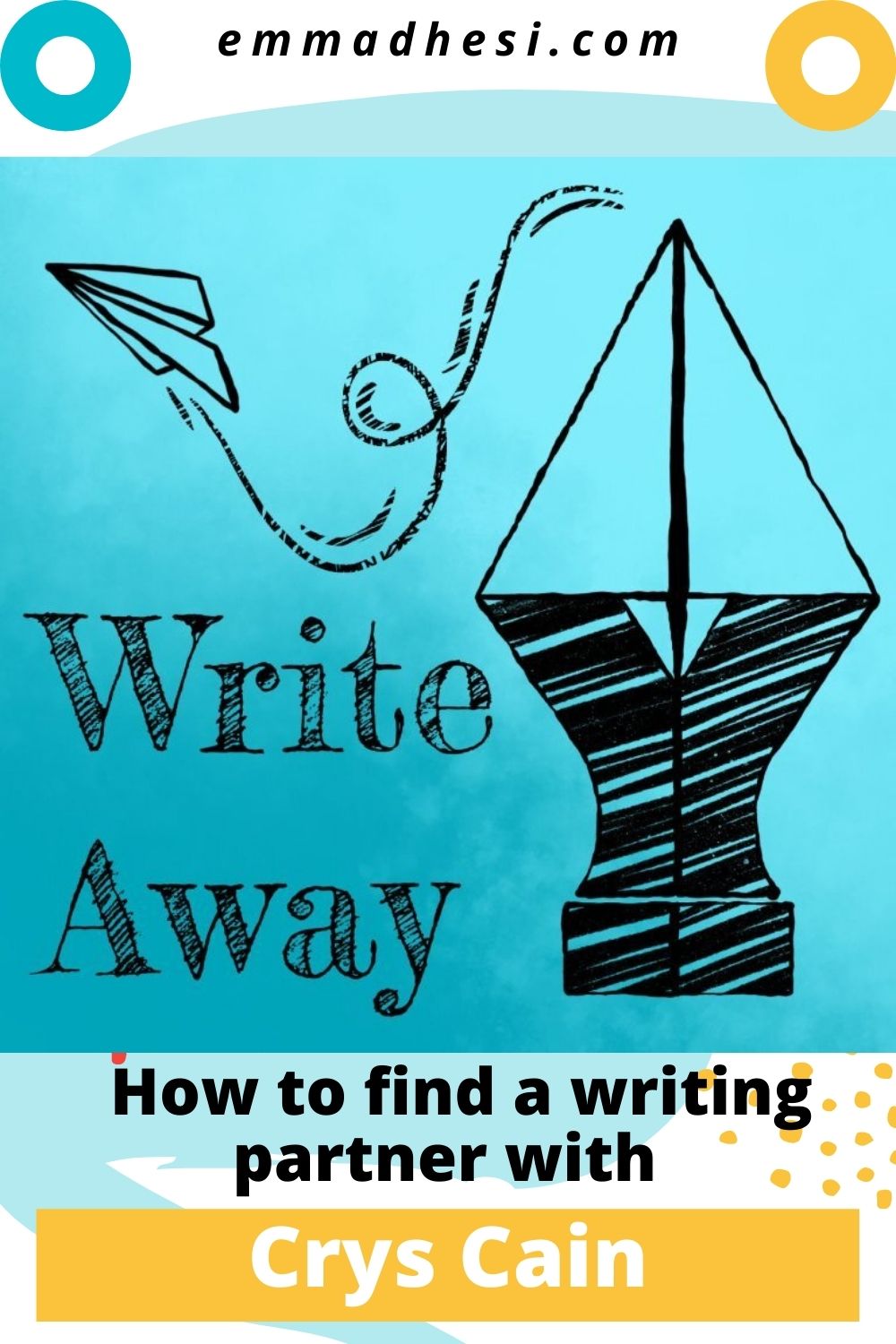
Emma Dhesi 23:59
Oh, that’s big picture thinking there that same ungenerous thinking too, because it would be you know, I’m sure not everybody would it would be easier to just go Okay, well, this is mine and I’m going to hold on to it. So I applaud you for that.
Crys Cain 24:14
I mean, that just leads to resentment on the line. And I don’t want that.
Emma Dhesi 24:20
So if we think about you and the lady you’re co writing with know, how does it work? So you both know, you’ve got this world, you both know the world. But how does it work in terms of coming up with story ideas, character names, and personality kind of, you know, the character development, let alone the plots?
How does that all kind of come together and work between the two of you?
Crys Cain 24:46
We’ve tried to structure these series pretty similar. It’s kind of you think of the jack Reacher books like they’ve got a fairly similar structure every time. And that’s somewhat how we’ve approached this but just from a romance point of view, so every series has a team. And those are the main characters of our series generally about six because that’s a really good number for our series.
And then in, when we sit down to plot out the first book, we figure out what the team members names are in just some basic characteristics about them and their personality.
And when we first started, because we didn’t have any idea where this was going, we really didn’t plot out an arc that was going to go from first book to last book, we have with our most recent series, we know who the bad like that there’s a hidden bad guy that is going to be revealed and dealt with by the last book.
And then we sit down, and it takes maybe about two hours. Now, we sit down and say, Okay, this book is going to be this many chapters, and it’s generally 12 to 16 for us. And now it’s gotten to the point was like, how many days do we have? How many days do we have to get this book written out? Because it takes us each day per chapter.
And so that’s two chapters per day. And so this last book, we’re like, we went on what write less days, so we’re gonna make it 12 chapters. And so next, I already have first chapter done, we’re writing it next week, we’ll have it done in a week.
And so for each of us, that’s two to 3000 words a day average. And then we sit down and we tell each other the story. We’ve gotten to the point where we don’t necessarily tell it to each other in chronological order. We start with chapter one.
And we start saying, Yeah, this happens, this needs to happen. This needs to happen.
Once we hit a point where like, ah, I don’t really know what needs to happen next, then we go to the end, because we know how it needs to end and we work our way backwards a little bit, and see how many how much room we have between that in the end, and then figure out what needs to go in where in between
Emma Dhesi 26:45
Develop stages when you sit down for two hours and figure out the plotline.
Crys Cain 26:49
Yep. And then our, our outlines have been anywhere from 2000 words to 7000 words, they don’t generally get to 7000 words anymore, because we’re Quick quick on it.
And then we just take turns generally writing chapters, one of the things we actually started doing in the last few books, because she’s been having trouble getting into a scene with everything that’s been going on in her life, is I will write the first half of the chapter.
And then she’ll jump in and continue it. Because she’s in the in the mode of writing them, then she can write the first half of the next chapter. And we’ve been writing middle to middle that of chapter front to chapter end.
And that’s been a really interesting and fun tactic as well.
Emma Dhesi 27:36
So do you find them that you’ve got a similar style of writing? Because that would be how do you kind of Mel that so that it’s not obvious that it’s two different writers?
Crys Cain 27:47
Because we read each other’s chapter, and make changes as we go through mostly additions rather than deletions, I discovered. And this is one of those things that differs from corregidor copy writer I discovered.
I think during our second series, I was being a little bit more heavy handed with edits, because I’ve used viewed them as suggestions like, hey, if this works for you take it if not, don’t worry, she viewed them as if I cared enough to make a change.
And I absolutely wanted it there. And so once we had this conversation about her resentment and frustration about this, I actually started making less, I started to stop making less suggestion changes and just more additive, like, Oh, I think this would add to the scene if I did this versus like, hey, instead, like, why don’t we do this.
With another co writer, we would tear each other’s chapters apart, where sometimes it would be just as much edits as it was original draft. But we were both really comfortable with that level, because we trusted the other to make it as strong.
So with both of those styles, though, the style gets pretty melded and I think, on my end, I don’t know about my co writer, I haven’t asked her this, I think I pick up a specific style when I’m writing our books versus when I’m writing other books.
Emma Dhesi 29:12
Okay, so kind of as it sounds like you’re able to kind of mold your style to fit the joint style that you’ve got there and then perhaps more kind of freedom perhaps or you can be more experiment, not experimental, but you can try new things when you’re writing your own stuff.
Crys Cain 29:33
And or even with other co writers, I can be a little bit more loose and free because like we because there’s more back and forth and writing over top of each other like it just will naturally melt there but with our books, I feel like I do Mel just slightly to that particular style, versus when I write other things.
Emma Dhesi 29:55
Oh, and as it changed me feel over the years that you’ve been writing together and It’s gotten easier, as you know each other but
Crys Cain 30:03
Yeah. And yeah, and just knowing more what the expectations are. And also, you know, we’ve tripped up over several things. And up, you know, for me one of those things is getting crunched against a deadline.
Right now, we’re not doing pre orders, even though pre orders work wonderfully for us, because between health and emotional things, we have gotten ourselves crunched up against our pre order deadlines, enough that we’re not going to do them, we’re not going to do long pre orders anymore.
We’re not going to put up a pre order until it goes to the editor, because we know exactly how much time we’re going to take once it goes to the editor.
Emma Dhesi 30:41
Yeah, you know, that’s something I’m too scared to do is have pre orders.
Crys Cain 30:48
My ideal is to have books done and put, like, you know, years in advance, I don’t know if you know, Rachel amphlett. But she has, I think she’s currently writing her 2022 books, because she’s already got, like, at the end of 2019, she already had all of her 2021 books and half of 2022 books done and so they were just ready to go to their next stage and they were on a calendar.
That’s ideal. Like, I love that. That’s my goal.
Emma Dhesi 31:14
Yeah, that that sounds Yeah, taking the pressure off quite a lot that you know, you’re two years ahead. That’d be lovely.
Crys Cain 31:21
Right now, like if I get sick, it’s fine.
Emma Dhesi 31:23
No breathing room. So So you are a full time writer, you’re a full time mum.
So what does the your the kind of structure of your working day or your working week look like? How do you fit everything in?
Crys Cain 31:37
I actually hired a nanny fairly early on. The original agreement was that my ex was going to be a stay at home dad taking care of the kid that did not work out very well. And so I hired a nanny who’s wonderful.
And she takes the kiddo from eight or nine depending on what there he was at my house or his dad’s house. And then until three or four, again, depending on which parent and so Monday, Wednesday, Friday, My day starts at eight. After he goes off with the nanny, she sometimes comes to the house or she just comes in picks them up and they go run around in the ocean in the sun.
And then those days my workdays can go late as late as I want. But most of the time, I just work here and there and I’ll go off. I can I don’t have a super strict schedule on those days. Tuesdays and Thursdays I get early mornings, which is my prime time for work.
I love early mornings, I’ve been sleeping until six. So I haven’t been getting like my dark hours working time. And when I can start work at four, I can get so much done. By the time eight o’clock rolls around.
But I haven’t been waking up that early. So that hasn’t been happening. And then Thursdays I have my two podcasts recording sessions scheduled. So I do work up until three o’clock on Thursdays but then I get the kiddo and we just hang out in the evenings.
Emma Dhesi 33:13
So what’s the What do you feel it is about the kind of foriegn start that the trim is…
Crys Cain 33:20
I’m just a morning person I’m a morning person there’s no no one else is awake making sounds like right now I mentioned the the truck going by the food truck. That’s a lot of fun.
But trucks go up and down. Motorcycles go up and down. I can hear my neighbor doing construction work. There’s just more noise I think and I that derails my brain a little bit even if I’m not consciously paying attention it because I live in Costa Rica and we don’t have in we just don’t have insulated houses.
The window behind me is very unusual in that it does have glass closing windows, most windows here. And most of the houses I’ve lived at our just screen windows. So you can hear sound all the time coming in and out of them.
And you know, when it’s the howlers in the two cans, that’s lovely. When it is your neighbors having a karaoke night? It’s a little different.
Emma Dhesi 34:21
Yes, I can imagine. Well, you’re painting such a lovely picture, though. You know, I’m in the, you know, dark, cold Europe. And there you are with two cans outside of Costa Rica and the beach and all the rest. Yes. Yeah. Like I don’t feel too sorry for you there.
But no, no. It sounds like as long as you get your two to 3000 words done a day, then you’re that’s you kind of good for the rest of it.
Do you do is the kind of marketing that you do for your books, the sort of admin side of things, or, you know, not to have to do too much of that.
Crys Cain 34:56
I’ll come back to that question. But I just wanted to note for listeners Like, I actually don’t write two to 3000 words a day unless I’m on a co writing book. I spent most of February not writing, because we ran up on those two deadlines at the very end of January, that wiped me out.
And I think I maybe wrote two days of February, which is not my ideal, I don’t like that. But I’m determined to write at least 1000 words a day, this month to try and avoid such a run up against deadlines again. But as far as marketing, the most marketing I do really is my email, which actually hire somebody to do because I hate doing it.
And it’s a weekly email, and I have a very set formula. Because we published monthly, I have basically three weeks of content planned, hey, here’s the pre order. Don’t forget to order it. Hey, the book is out. And then the third week is, Oh, my gosh, you guys, thank you so much for reading the book here. Some great things you’ve said about it.
If you haven’t left a review, go do so. And then the fourth week, I generally have something else going on whether it’s a sale or an audio book is releasing or whatnot. And so I generally have every week covered with something new coming out. And I yeah, I not ideal. It’s a little fast for what my ideal is, but it is what I’ve got right now.
And I’ve got a system that works. Other marketing. Yeah, I’ve lucked out in that my co writer is such a good Facebook marketer, she’s, she’s just really, it’s really natural for her to engage with, with people. And I, it’s not one on one love it small group love it, particularly writers if you’re if you’re if you don’t have one of my special interests for basically writing.
But there’s a few other things that I don’t know how to talk to you. For the most part, I score pretty high on like self diagnosis for autism. So at some point, like that’s going to be a pursuit.
But I’m just like people I don’t understand and mass, I do not understand people. But I need them to live. So. But I’ve lucked out with her being a natural that and she’d been I think in other positions with sales before. So
Emma Dhesi 37:20
She knows what it’s all about. Now you’ve Well, thank you for sharing that. I you’ve mentioned that you have a podcast called rights away, which I listened to. And I really, really enjoy and do that with JP.
So if you can tell us a little bit about that. And what prompted you to start it.
If you’ve been working on your novel for years (perhaps even decades) the maybe it's time to consider working with a coach.
If you have multiple versions of your novel and you don’t know which works best, are scared nobody will like your book and don't feel like a 'real' writer, then my guess is coaching is the right next step for you.
Find out more and sign up for your free Clarity Call here: https://emmadhesi.com/personal-coaching/
Crys Cain 37:40
I don’t want to start a podcast to nerd out about writing for a year or two before I started it, I’m not really sure how much time but I wanted to have a clearer idea of what my focus would be, rather than just popping on and rambling.
And I tried to be an interview show at first, but then I found that was extremely draining for me to one have to schedule interviews, and then to have to do the interviews, because that involves research and deciding on questions.
And, and I was very transparent with my process as I was putting out those beginning episodes being like, Hey, guys, I’m still figuring out what works. And I tried to do some solo episodes. But those I needed to script, I couldn’t just sit in front of a microphone and jabber at it coherently, without long pauses.
So I ended up talking to my friend JP and be like, hey, you wouldn’t be interested by any chance and joining me as co host. And so we just read each other and it’s lovely. We do want to do a few more interviews with folks. We’ve got some stuff saved up. And we’re doing some fun episodes, because we’re Taro geeks as well.
And so we’ve been doing some fun Tarot stuff as far as like planning our business using Tarot or like looking at our year on our substack. And we just this morning recorded an episode on how to write a short story using Taro part one of two. And he’s done that before I haven’t. And so it’s just been so much more energetic to work with him.
And then and for any Clifton strengths geeks out there, he’s high in ideation. So when I was like, hey, if you wouldn’t mind like putting down like a few ideas of things you’d like to talk about, that’d be great. And he’s like, Okay, cool. Here’s 40 I’m like, Wow, amazing.
Excellent. Yeah, so that has been lovely, great addition. And then we have have a monthly Book Club, which is just an excuse to talk with other writers about craft and business books.
And that’s been just a blast as well.
Emma Dhesi 40:07
Oh, okay, well, I’m definitely gonna link to that in the show notes for people so they can jump aboard and listen. And I have to say, I love the graphic that you’ve got for right away. It’s really clever. I’m looking at..
Crys Cain 40:20
That was JT he did it
Emma Dhesi 40:22
Oh it is really good. Yeah, check it out. But you’re just before we started recording, you told me that you have started a second podcast want to tell us about that?
Crys Cain 40:32
Yeah. So I’ve been a member of the author success mastermind for I it’s over two years, I can’t remember exactly when Jay Thorne started it. But it moved into a community format from just a small group of 12 to a larger group on Slack, flew about a year ago, and and you’re a member of this, you’re also a member of the smaller mastermind this year.
And we have, we have had questions that pop up fairly regularly, you know, both in the community. And when we’re just talking to people in general and we thought one of the really good ways for us to delve deep, since it’s hard to type everything up on slack would be to talk to each other about it on a podcast.
And so we have the author success mastermind podcast, which is a mouthful, coming out. I don’t know when this episode goes live, but as of this recording, it’s coming out on Tuesday.
So by the time people hear this, it’ll probably be live. We do have a trailer episode out there just so people can hit subscribe. And it’s it’s been fun. We banked a few episodes to start. And I don’t know we get into some good and juicy things. I like it.
Emma Dhesi 41:55
Yeah, I’m looking forward to listening to it. Definitely. So I’m conscious of time. But before we wrap things up, I’d love to know a little bit about what you’re working on right now.
But not just your core writing stuff. I’d love to know a little bit more about what your passion project might be at the moment. What are you working on?
Crys Cain 42:14
Yeah, I my goal is to start releasing fiction, specifically science fiction and fantasy under my actual name, Crys Cain, excuse me. And I found when I tried working on it at the same time as my romance, that I didn’t have energy, I just got distract completely distracted by one project or the other.
And I kept getting frustrated because I would either not have enough energy for the science fiction, fantasy stuff. Or I would put a lot of attention on it, and then have run up against a deadline for the romance stuff and or just be like, Oh, I need to go make money now.
So my goal is to finish up the romance stuff this year, mostly, there’ll be a few other book trailing off books that I do need to finish up in 2022. So that I can talk money way in my in my bank account, to cover me to just focus on writing science fiction and fantasy, I have a co writing science fiction project that is just kind of been meandering.
My co writer is a slow writer, and we’re doing that one differently. With romance. It’s always been alternating chapters. With my co writer, I’m doing the first draft and they will do the editing phase. And they did the outlining phase like I would pop and be like, oh, wouldn’t it be cool if they’re a structure geek. So it’s been wonderful.
And they’re a world building geek. It’s wonderful. I have another sci fi that I started kind of writing into the dark. And I have a Cozy Mystery placed on an island in Georgia.
That is that just makes me laugh every time I pick it up. And so that’s probably the first novel I’ll finish just because it brings me so much joy. And I probably have the most clarity about that one of all the solo projects I have. But yeah, they’re all kind of waiting for me to have energy.
But I plan on writing short stories in between these other romance writing projects to maybe put out there to like, just establish a presence. Maybe submit to some anthologies, and magazines, and just start trying to get myself in the habit of putting myself out there as my real self and not behind a pen name.
Emma Dhesi 44:38
Yeah. And it will be nice kind of what Joanna pen calls a palate cleanser. It’ll be nice to play. Just have like something different. Yeah, absolutely. Well, you’re a busy busy lady. My goodness. Well listen, where can listeners find out more about you online? Or can they?
Crys Cain 44:55
They can, but not the romance super secret, but I Do you have my website CrysCain.com There’s not much there. It needs an overhaul but also right away podcast.com and the author success mastermind.com and tik tok, if you’re Tik tok, it’s Crys Cain.
Emma Dhesi 45:16
Perfect, lovely. Well, thank you, Crys Cain, very much for your time today. It was lovely speaking to you.
Crys Cain 45:21
Thank you, Emma.
Emma Dhesi 45:25
Well, thank you so much for joining me today.
I hope you find that helpful and inspirational. Now, don’t forget to come on over to facebook and join my group, Turning Readers into Writers.
It is especially for you if you are a beginner writer who is looking to write their first novel.
If you join the group, you will also find a free cheat sheet they’re called three secret hacks to write with consistency.
So go to emmadhesi.com/turning readers into writers. hit join.
Can’t wait to see you in there.
All right. Thank you.
Bye bye.
Support The Show
If you enjoy the Turning Readers Into Writers podcast, you can now support my time in producing the show with Patreon.
If you find that the podcast adds value and you’d like to help support the show, please consider supporting me on Patreon for $3.00 per month and you’ll get bonus podcast content, as well as a personalised thank you from me, and a shout out on the show.
If this interview with Crys Cain was useful, you’ll love:
Shortcuts for Writers


Emma Dhesi
Emma writes women’s fiction. She began writing seriously while a stay at home mum with 3 pre-school children.
By changing her mindset, being consistent and developing confidence, Emma has gone from having a collection of handwritten notes to a fully written, edited and published novel.
Having experienced first-hand how writing changes lives, Emma now helps beginner writers find the time and confidence to write their first novel.


